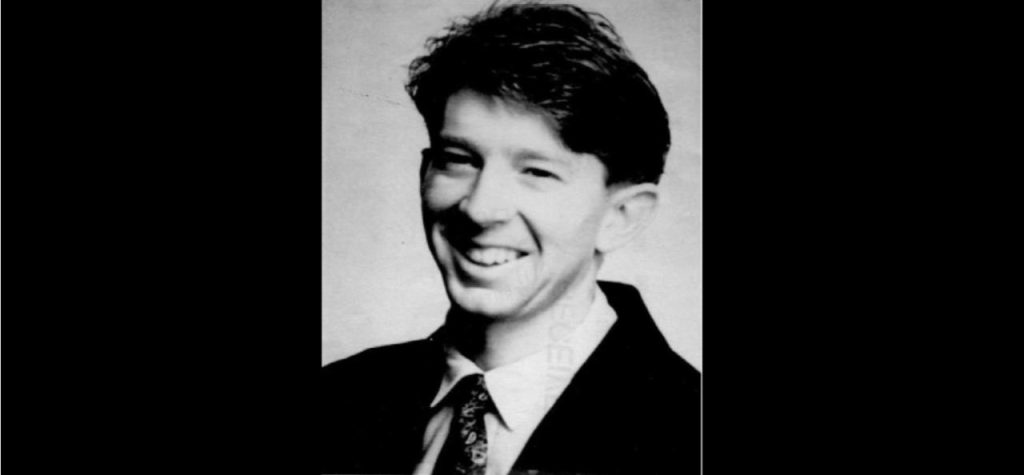The events surrounding the September 1990 mugging of 22-year-old Brian Watkins, an aspiring tennis player, in a Manhattan subway station are chronicled in NBC’s “Dateline: Tipping Point.” The police arrested the offenders within hours after the incident after significant pressure from the media and political establishment, causing a tremendous commotion and making national headlines.
How Did Brian Watkins Die?
On May 15, 1968, Brian Scott Watkins was born in Provo, Utah County, parents Sherwin James and Karen Cox Watkins. Being an active child, he had an early love for tennis. Throughout his life, he participated in competitive tennis, placing first every time in the USTA’s Intermountain Section. Brian earned the state singles championship while playing on the Provo High School tennis team, which was the state champion. After graduating from Provo High School in 1986, he received an opportunity to attend Idaho State University on a tennis scholarship (ISU).
During his two years as an ISU tennis player, he was awarded the 35th Annual Sam Bennion Award, which goes to Idaho State’s most inspirational athlete. After overcoming a serious knee injury, Brian finished second in the state in singles during his senior year of competition. After two years of education, he reportedly left to work for the American Business Service, a company that hosts motivational seminars. In addition, he had been a tennis instructor at his parent’s Provo, Utah, club, the Ridge Athletic Club.
However, when in New York for their annual trip to see the US Open, Brian’s aspirations for a tennis career were dashed in September 1990. On September 1, 1990, Brad Pearce, a professional tennis player from Provo, was playing in the US Open. According to sources, Brian, his parents, his brother Todd James Watkins, and his sister-in-law Michelle Watkins watched the match with Debbe Jaspering, the social tennis director of Ridge Athletic Club. On September 2, the Watkins family was heading to the Tavern on the Green in Central Park for dinner.
They were in a Manhattan subway station at 53d Street and Seventh Avenue when eight teenagers in a gang approached them and demanded money, according to news sources. The attack, according to Assistant District Attorney Thomas Schiels, “was as savage as it was swift.” The young attackers used a box cutter to slit Sherwin’s jeans pocket, causing cuts to his buttocks. They also took credit cards and a money clip containing $200 from him. They kicked her head and knocked his wife, Karen, to the ground when she intervened.
According to police reports, the perpetrators killed Brian, 22, by stabbing him while he was trying to defend his mother. Todd, 22, was the older brother and had resisted the attackers. He chased the young people down the station, according to witnesses, and then collapsed at the base of a stairway, his chest knife wound gushing blood. “I applied pressure on his chest,” Sherwin recounted. He was severely injured. Karen, my wife, went to look for assistance. “I was telling Brian, please breathe,” he continued. He said the vicious attack perplexed his son.
Sherwin cited Brian as asking, “Why did they treat me like this? We are merely here to enjoy ourselves. Witness to the incident Nick Rosanovich said, “He (Brian) had a knife in his chest.” He appeared to be gone. On the route to St. Vincent’s Hospital, he was fatally stabbed once in the chest. Brian received tennis instruction from professional player Trevor Rothfels, who recollected, “It was his mom that he helped, but it just happened to be her.” For anyone, he would have given his life to save them. It was not required that it be someone he knew.
Yull Garry Morales: Identified as Brian Watkins’ Killer
The New York Police Department began interviewing potential suspects shortly after the attack, and at midnight, two of the alleged attackers were taken into custody outside the Roseland Ballroom. At 4:00 am, three further potential suspects were captured as they were leaving Roseland. According to police sources, two more people were taken into custody on September 3 afternoon, including Yull Garry Morales, who was 19 at the time and is suspected of using a knife to kill Brian. An eighth suspect was taken into custody about 11:00 p.m.
A police spokeswoman, Captain Stephen Davis, responded, “Most transit police know that most of the kids who get off at 53d Street are going to Roseland,” in response to a question about how the authorities linked the suspects to Roseland. It made sense to check there. According to police sources, the box cutter used to cut the father’s pants and the murder weapon, a folding knife with a four-inch blade, were found on the suspects in Roseland. The teen’s motivations, according to Thomas Schiels, “were no less trivial than to finance a night of dancing.”
The Watkins family reportedly went into the West 42d Street precinct station building at 2:35 p.m. on September 3 in order to see lines and find the aggressors. The teenagers allegedly declared they had no intention of killing. Sherwin, however, refuted their allegations, claiming a young man slashed at them with a knife and thrust the blade to his throat. “They were pushing me down by my shoulders, and someone was cutting the back of my pants,” he said in his testimony. My wife and my daughter-in-law’s screams could be heard. I was also shouting.
His buttocks had an 8 to 10-inch cut, which required medical attention. The accused stabber, Yull Garry Morales, stated that the victim “accidentally fell on” his knife. Thomas Schiels, however, asserted that some defendants had stated that Yull had boasted about having killed Brian. Anthony Anderson, age 18, Ricardo Nova, age 18, Ricardo Lopez, age 18, Emilo Fernandez, age 17, Johnny Hincapie, age 18, and Yull were the people that were placed under arrest. In 1992, the defendants were found guilty of felony murder after being tried in two sets of four.
Except for one who was spared, all of them received sentences ranging from 25 years to life. Johnny Hincapie was among those convicted; he spent over twenty-five years behind bars before his conviction was overturned and the indictment against him was dropped in 2015 because there was not enough evidence. In 1990, Brian’s parents founded The Brian Watkins Memorial Foundation to give scholarships based on academic achievement, extracurricular involvement (particularly in sports and leadership), and financial need.



